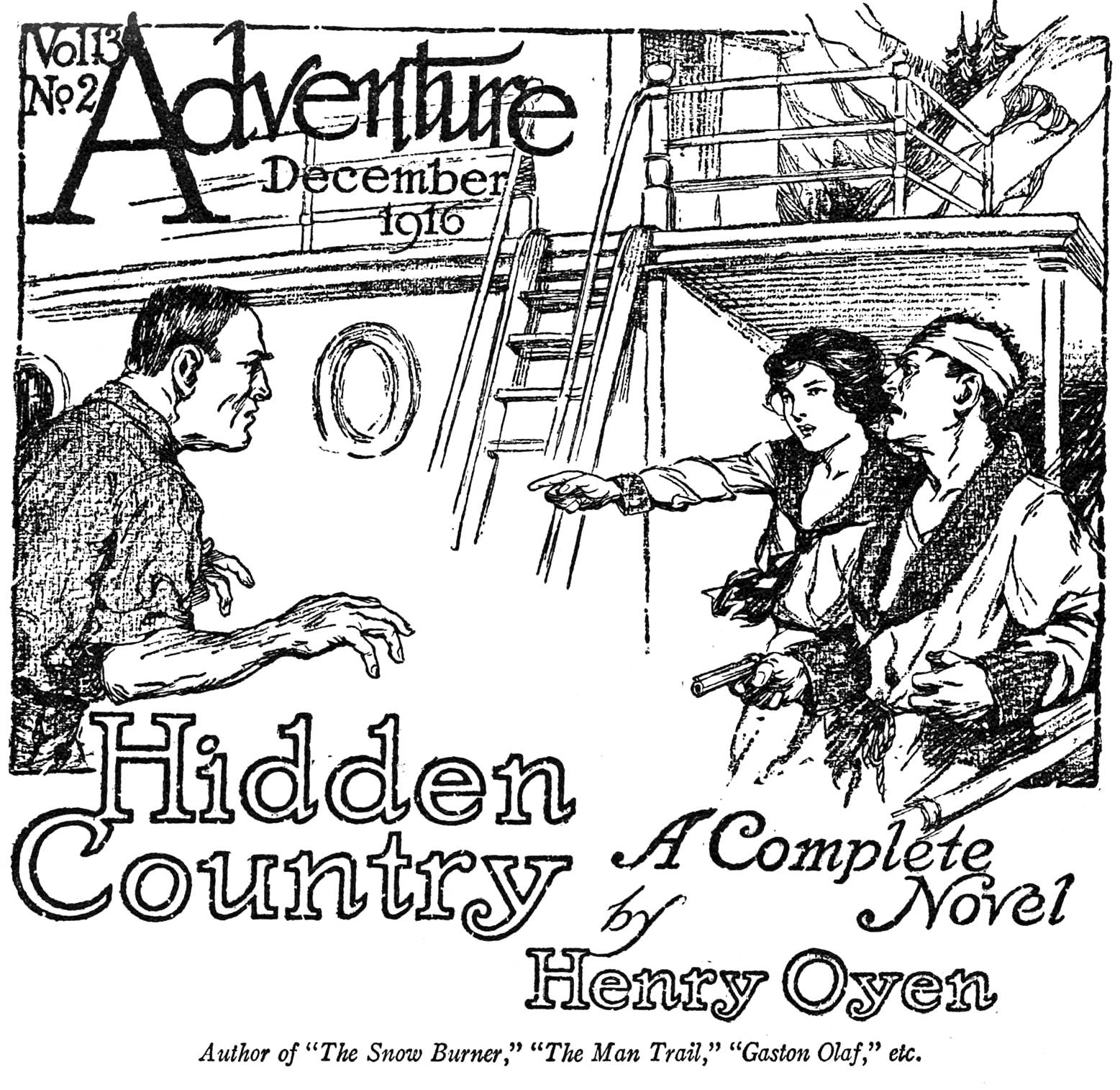
HIDDEN COUNTRY
I
George Chanler’s offer of a position as literary secretary of hisArctic expedition came to me one fine May morning when I was sittingat my desk, glooming from an eighteenth-story height down upon theEast River, and dreading to begin the day’s work.
I had sat so for many mornings past. I was not happy; I was a failure.I was thirty years old, had a college education; my health wassplendid and I was intelligent and ambitious. And I was precariouslyoccupying a position as country correspondent in Hurst’s Mail OrderEmporium, salary $25 a week, with every reason to believe that I hadachieved the limits of such success as my capabilities entitled me to.
“You ain’t got no punch, Mr. Pitt; that’s the matter vit’ you,” was myemployer’s verdict. “You’re a fine feller, but—oof! How you haf gotinto the rut!”
I had. I was in so deeply that I had lost confidence and was losinghope. That was why I, Gardner Pitt, bookman by instinct and office-cogby vocation, was ripe for Chanler’s sensational offer.
My friendship with Chanler, which had been a close one at school whereI had done half his work for him, had of a necessity languished duringthe last few years. There is not much room for friendship between apoorly paid office man and an idle young millionaire. Yet it wasapparent that George had not forgotten, for now he turned to me whenhe wanted some one to accompany him and write the history of hisArctic achievements.
His offer came in the form of a long telegram from Seattle where hewas outfitting his new yacht, Wanderer. Being what he was Georgegave me absolutely no useful information concerning the nature of hisexpedition. In what most concerned me, however, his message wassufficient: a light task, a Summer vacation, and at generous terms.
I looked out of the window at the wearying roofs of the city, and theyellow paper crumpled in my fingers as I clenched my fist. There wasnone of the adventurer in me. I was not in the optimistic frame ofmind necessary to an explorer. But Chanler’s offer was, at least, achance to escape from New York. I bade Mr. Hurst good-by, and went outand sent a wire of acceptance.
Eight days later, shortly before noon, I stood on the curb outside thestation in Seattle bargaining with a cabman to drive me to the dockwhere I had been directed to find a launch from the Wandererawaiting me that morning. The particular cabman that I happened to hitupon was an honest man. He cheerfully admitted that he did not knowthe exact location of the dock mentioned in my directions, but heassured me that he knew in a general way in which section of thewater-front it must be.
“And when we get down there I’ll step in and ask at Billy Taylor’s,”he said, as if that settled the matter. “Billy’ll know; he knowseverything that’s going along the water-front.”
Billy Taylor’s proved to be a tiny waterfront saloon which my manentered with an alacrity that testified to a desire for something morethan information concerning my dock. I waited in patience for manyminutes with no sign of his return. I waited many more minutes inimpatience with a like result.
In my broken-spirited condition I was not fit or inclined to reprimanda d